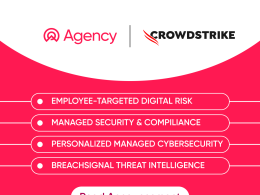It can be a very troubling experience to have your online account hacked. Not only is it just super inconvenient to you (since you can’t get into your account) it can also be quite a stressful experience if the account in question is essential to your everyday life.
Whether it’s the email, bank account you use for your business, or your social accounts, such as Facebook, Twitter, or Instagram, you use it to socialize and stay in touch with friends and family.
All of these accounts can be hacked this very second if you’re unfortunate enough and might take some time getting back to you.
But, how does one of these account hacks happen?
And what can you do to prevent being a victim of it? At Agency, we’re constantly looking for ways to help people protect themselves from account hacks. Our platform keeps you secure everywhere you use your online accounts.
But there are some fairly simple ways these hackers get into your account to prevent you from using it that don’t take too much of their time.
We’ll mention what they are and how they can happen and provide you with an actionable solution that will allow you to prevent your Facebook, Instagram, Twitter, Email, and Bank accounts from being hacked in the future.
How your accounts are easily hacked
#1. Keyloggers
Keyloggers are a piece of software that can run in the background on your device, typically on a laptop or computer, which log every key, you press.
This software is often used to get a hold of information that you won’t want to be out there in the world for all to see.
That can be things like your credit card numbers, account credentials, and online banking passwords (as well as your social account passwords).
Now not many people will freely go out of their way to download a keylogger since its something very foolish to do, as you’ll be compromising your own account information on purpose.
Though one of the ways you could have this software unwillingly on your system is by downloading a file that may have been compromised, such as a disguised file as something you were looking for.
In this case, you are unintentionally downloading a keylogger to your device, allowing the software to scan every keypress and thus finding out your passwords and any other data needed to hack your accounts.
Solution
Only download software from sites that you trust. Also having something like an antivirus that scans any new files will help you protect against keyloggers and any other virus that could compromise your passwords and account details.
#3. Phishing
Phishing is essentially what an attacker does to get your passwords out of you, typically done by impersonating a service you use, whether that’s through email or through one of the social channels you use.
This can be done by pretending to be your bank, providing a fake link which on the other end would ask you to enter your details (as you would when logging into your online bank account as usual) this way, you’re directly giving the hacker what they want without knowing it.
Another way this can be achieved is by impersonating some form of authority on social media, whether that’s a person pretending to be an Offical Facebook account or an Offical Twitter account.
They would typically ask for your details for whatever purpose they tell you they need them for, as a way of getting into your account.
Essentially, they use the trust you’ve developed with these services over the years as a way of getting your precious account information out of you.
Solution
Be very mindful of any message you receive that claims to be someone you trust, the best cause for action is to ignore any message you receive that claims to be a service you use in need of your account detail.
If you suspect a message may be legit, then your best bet is to contact the service in question directly through links or phone numbers you trust, rather than clicking any links that have been sent to you directly.
#4. Reusing passwords across multiple accounts
Many people like to use the same password across multiple accounts, for no other reason than that it is just easier to remember one password than it is to have different ones for your Twitter, Facebook, or Instagram account – the logic is pretty good here.
The problem arises when one of these websites has a data leak – passwords get compromised – and now the password you had is gone into the world.
These passwords from the data leak are then run across multiple social platforms, bank accounts, and other places on the internet to see if you use the same password on these too. Meaning you lose all of your accounts at once.
Solution
Make sure to keep all of your passwords unique from one another and either keep up to date with the latest data leaks OR just regularly change your passwords so you can be sure you’re never compromised without you knowing.
#5. Poor security questions
Security questions are a common part of protecting your account. They are questions that very heavily relate to you that will help whatever social platform you are using to identify you.
These can be questions such as “What is your mother’s maiden name?” “What is the name of your first pet?“, “Which country did you first fly to?” etc.
These are a solid way to help protect your account. Thanks to our modern world, the only problem is that this information is easily found across all of your social platforms.
They could spend less than a couple of minutes scrolling through your Facebook or Twitter feed to find your pet’s name or your mother’s maiden name.
Solution
Since you choose which question you want to answer, it would be best to pick the ones that will have answers that aren’t so easily discoverable on your social media accounts – you could even have answers that are completely unrelatable to the question for an extra measure.
Though this might cause you further trouble down the line if you were to forget these unique answers.
If your account has been hacked, you can sign up for Agency immediately, and our team will help you recover your account and prevent future attacks.







